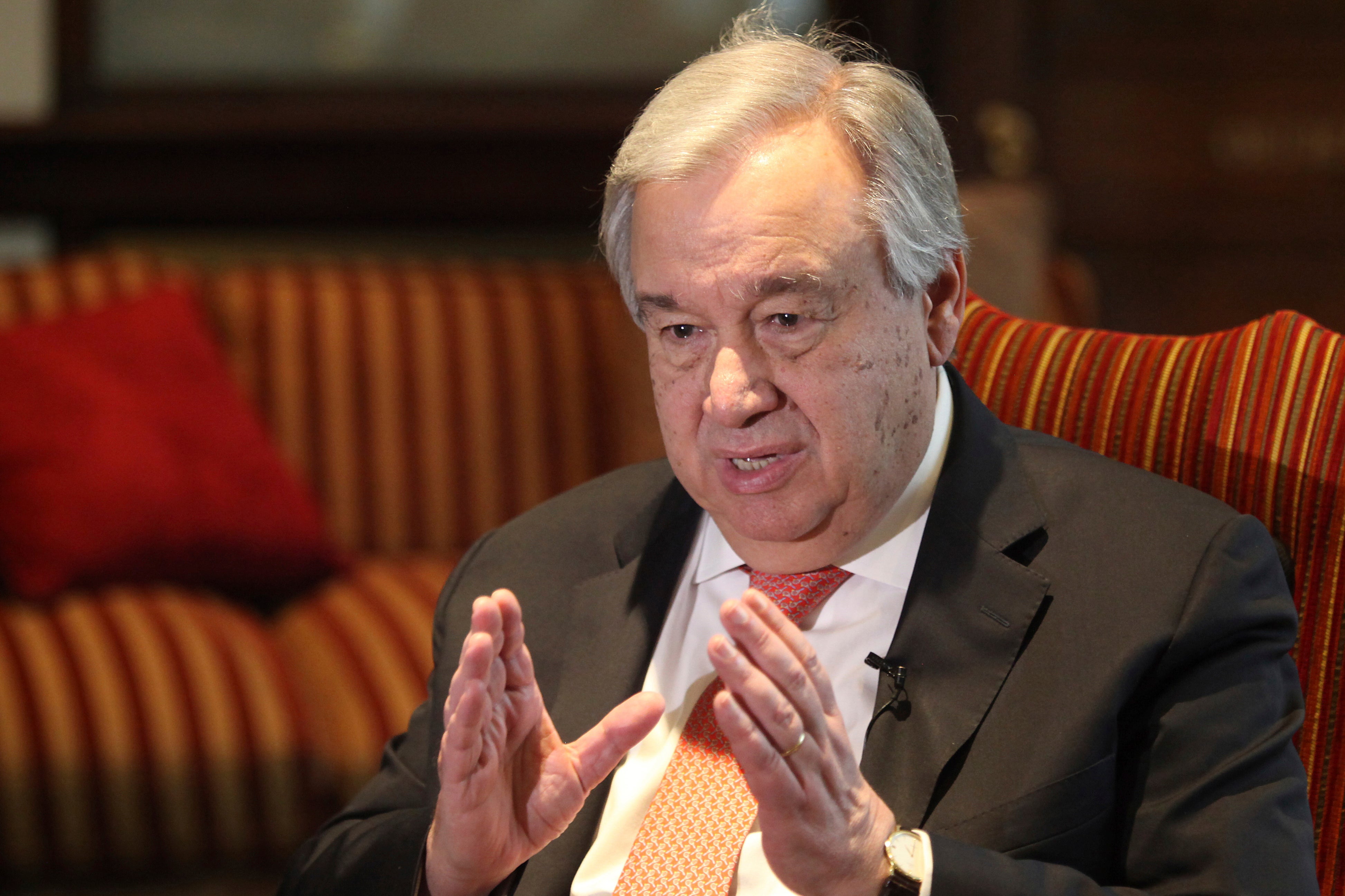UN Secretary General says misinformation on Covid-19 is ‘shadow pandemic’
UN Secretary General António Guterres suggests lives are at risk over spread of misinformation

Your support helps us to tell the story
From reproductive rights to climate change to Big Tech, The Independent is on the ground when the story is developing. Whether it's investigating the financials of Elon Musk's pro-Trump PAC or producing our latest documentary, 'The A Word', which shines a light on the American women fighting for reproductive rights, we know how important it is to parse out the facts from the messaging.
At such a critical moment in US history, we need reporters on the ground. Your donation allows us to keep sending journalists to speak to both sides of the story.
The Independent is trusted by Americans across the entire political spectrum. And unlike many other quality news outlets, we choose not to lock Americans out of our reporting and analysis with paywalls. We believe quality journalism should be available to everyone, paid for by those who can afford it.
Your support makes all the difference.UN Secretary General António Guterres has issued a stark warning about increased dependence on digital technology, which he claims is heightening vulnerability to harm and abuse - particularly in light of the coronavirus pandemic.
Speaking in a UN web summit, Mr Guterres said “health and lives” have been put “at risk” by “the shadow pandemic of misinformation about Covid‑19”.
With a Covid vaccine to be disseminated across the UK within the next few days, and other countries with their own vaccines in the final stages of testing, a major concern from Mr Guterres is the interaction between conspiracy theories and public opinion on inoculations.
Mr Guterres suggested conspiracy theories “threaten to reduce the uptake and effectiveness of vaccines that become available".
The dangers of the world wide web are not limited to misinformation on Covid, however, with the talk also referencing the growing harms caused by “the proliferation of online hate speech, and the withdrawal into social echo chambers [that] will continue to undermine social cohesion and reduce trust in science, in institutions and in each other” as well as the online sexual harassment of women, girls, and children.
However, his references to the Internet were not all negative, as he stated that “Internet access and digital advances have kept people connected and societies running” during the pandemic, when many people have been isolating, social distancing, or left confused by these unprecedented times.
Guterres also noted that the divide between those who have access to the Internet compared with those who do not causes half the world to be “denied opportunities to study, communicate, trade, work and participate in much of what is now normal life for the richer half of the world”.
A study from the University of Oxford earlier this year showed that people who hold coronavirus conspiracy beliefs are less likely to comply with social distancing guidelines or take-up future vaccines, and this could endanger public health further.
Join our commenting forum
Join thought-provoking conversations, follow other Independent readers and see their replies
Comments